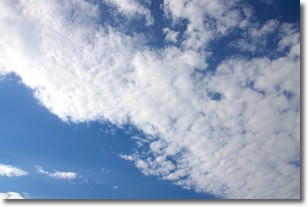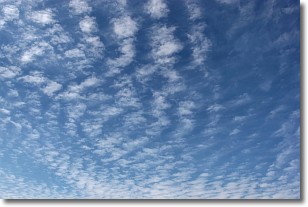Weather Alert in South Carolina
Tropical Cyclone Statement issued July 4 at 5:19PM EDT by NWS Charleston SC
AREAS AFFECTED: Hampton; Inland Colleton; Dorchester; Inland Berkeley; Inland Jasper; Beaufort; Coastal Colleton; Charleston; Coastal Jasper; Tidal Berkeley
DESCRIPTION: HLSCHS This product covers southeast South Carolina and southeast Georgia **TROPICAL DEPRESSION FORMS OFF OF THE SOUTHEAST U.S. COAST** NEW INFORMATION --------------- * CHANGES TO WATCHES AND WARNINGS: - A Tropical Storm Watch has been issued for Charleston * CURRENT WATCHES AND WARNINGS: - A Tropical Storm Watch is in effect for Charleston * STORM INFORMATION: - About 150 miles south-southeast of Charleston SC or about 150 miles southeast of Beaufort SC - 30.8N 79.0W - Storm Intensity 35 mph - Movement North or 360 degrees at 2 mph SITUATION OVERVIEW ------------------ A Tropical Depression off the Southeast U.S. coast will slowly track towards the Carolina coast tonight into Saturday. As the system approaches, it could become better organized and strengthen into a Tropical Storm. The system is expected to track onshore along the South Carolina coast Sunday morning. As the system nears the coast, it is expected to interact with an area of high pressure centered over the Mid Atlantic states, resulting in gusty northeast winds north of the center of low pressure. Wind gusts are forecast to remain the strongest along the South Carolina beaches, with gusts around 40 mph. In addition, wind gusts across the high bridges of Highway 17 and Interstate 526 may exceed 45 mph at times on Saturday. Rain bands should push onshore along the coast of the South Carolina Lowcountry early Saturday morning. These rain bands may drift slowly inland as the system nears the coast Saturday into Saturday night. It is possible that showers and thunderstorms could repeatedly pass over the same areas Saturday afternoon through late Saturday night, possibly leading to areas of excessive rainfall. In addition, heavy rainfall could occur during the late afternoon high tide on Saturday, potentially increasing the risk of flooding across coastal cities and locations near tidal waterways. Gusty winds and increasing wave activity may result in strong rip currents along the South Carolina and Georgia coast through this weekend. The potential for rip currents appears greatest on Saturday. POTENTIAL IMPACTS ----------------- * WIND: Prepare for hazardous wind having possible limited impacts across Charleston County. Potential impacts in this area include: - Damage to porches, awnings, carports, sheds, and unanchored mobile homes. Unsecured lightweight objects blown about. - Large tree limbs broken off. A few trees snapped or uprooted, but with greater numbers in places where trees are shallow rooted. - Some roads impassable due to debris, particularly within urban or heavily wooded locations. Hazardous driving conditions on bridges and other elevated roadways, especially for high profile vehicles. - Isolated to scattered power and communications outages. Elsewhere across southeast South Carolina and southeast Georgia, little to no impact is anticipated. * FLOODING RAIN: Prepare for locally hazardous rainfall flooding having possible limited impacts across South Carolina Lowcountry. Potential impacts include: - Localized rainfall flooding could prompt a few rescues. - Rivers and tributaries could quickly rise with swifter currents. Small streams, creeks, canals, and ditches could become swollen and overflow in spots. - Flood waters can enter a few structures, especially in normally vulnerable spots. Rapid ponding of water could occur at underpasses, low-lying spots, and poor drainage areas. Several storm drains and retention ponds become near-full and begin to overflow. Some brief road and bridge closures. Elsewhere across southeast South Carolina and southeast Georgia, little to no impact is anticipated. * OTHER COASTAL HAZARDS: Gusty winds and increasing wave activity may result in strong rip currents along the South Carolina and Georgia coast through this weekend. The potential for rip currents appears greatest on Saturday. PRECAUTIONARY/PREPAREDNESS ACTIONS ---------------------------------- * EVACUATIONS: Follow the advice of local officials. * OTHER PREPAREDNESS INFORMATION: Always heed the advice of local officials and comply with orders that are issued. Do not needlessly jeopardize your life or the lives of others. * ADDITIONAL SOURCES OF INFORMATION: - For information on appropriate preparations see ready.gov - For information on creating an emergency plan see getagameplan.org - For additional disaster preparedness information see redcross.org NEXT UPDATE ----------- The next local statement will be issued by the National Weather Service in Charleston SC around 11 PM EDT, or sooner if conditions warrant.
INSTRUCTION: N/A
Want more detail? Get the Complete 7 Day and Night Detailed Forecast!
Current U.S. National Radar--Current
The Current National Weather Radar is shown below with a UTC Time (subtract 5 hours from UTC to get Eastern Time).

National Weather Forecast--Current
The Current National Weather Forecast and National Weather Map are shown below.

National Weather Forecast for Tomorrow
Tomorrow National Weather Forecast and Tomorrow National Weather Map are show below.

North America Water Vapor (Moisture)
This map shows recent moisture content over North America. Bright and colored areas show high moisture (ie, clouds); brown indicates very little moisture present; black indicates no moisture.

Weather Topic: What are Altocumulus Clouds?
Home - Education - Cloud Types - Altocumulus Clouds
 Next Topic: Altostratus Clouds
Next Topic: Altostratus Clouds
Similar to cirrocumulus clouds, altocumulus clouds are
characterized by cloud patches. They are distinguished by larger cloudlets
than cirrocumulus clouds but are still smaller than stratocumulus clouds.
Altocumulus clouds most commonly form in middle altitudes (between 2 and 5 km)
and may resemble, at times, the shape of a flying saucer.
These uncommon formations, called altocumulus lenticularis, are created by uplift
in the atmosphere and are most often seen in close proximity to mountains.
Next Topic: Altostratus Clouds
Weather Topic: What are Cirrocumulus Clouds?
Home - Education - Cloud Types - Cirrocumulus Clouds
 Next Topic: Cirrostratus Clouds
Next Topic: Cirrostratus Clouds
Cirrocumulus clouds form at high altitudes (usually around 5 km)
and have distinguishing characteristics displayed in a fine layer of
small cloud patches. These small cloud patches are sometimes referred to as
"cloudlets" in relation to the whole cloud formation.
Cirrocumulus clouds are formed from ice crystals and water droplets. Often, the
water droplets in the cloud freeze into ice crystals and the cloud becomes a
cirrostratus cloud. Because of this common occurrence, cirrocumulus cloud
formations generally pass rapidly.
Next Topic: Cirrostratus Clouds
Current conditions powered by WeatherAPI.com




